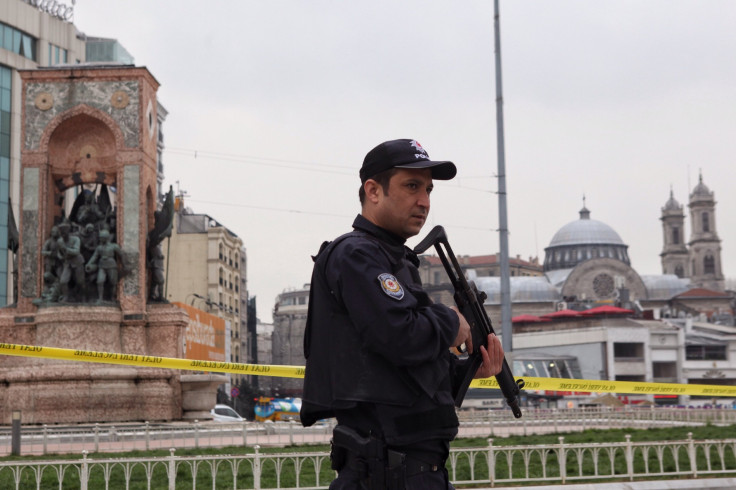Amid ISIS And Kurdish Attacks In Turkey, Erdoğan Vows To Combat ‘Biggest Waves Of Terrorism’ Ever

Turkish President Recep Tayyip Erdoğan underscored the complex threat facing his country Monday, calling it “one of the biggest waves of terrorism in its history,” various media outlets reported. The statement came days after a suicide bomber struck the heart of Istanbul’s tourist and shopping district, killing four people, in the latest in a string of terror attacks in Turkey's major cities.
“We will hit these terrorist organizations as hard as possible,” Erdoğan said in Istanbul.
In the past eight months, more than 200 people have been killed by terrorists in Turkey. The bombing in Istanbul Saturday was allegedly carried out by a Turkish supporter of the Islamic State group, aka ISIS, while an attack in the capital city of Ankara a week ago, which killed at least 37 people, was purportedly carried out by Kurdish militants.
There were five major terror attacks in #Turkey this year alone. #IstanbulBombing https://t.co/HdMefd8Hhc pic.twitter.com/98tphrK7Mq
— dwnews (@dwnews) March 19, 2016
Turkey has faced a double-pronged threat in recent months. The prolonged war in Syria and the rise of extremist groups there has encouraged attacks in Turkey, which supports the U.S.-led anti-ISIS campaign. At the same time, a tenuous ceasefire with the Kurdistan Workers’ Party (PKK) has unraveled in recent months, turning parts of the southeast into a war zone.
Kurdish militants have targeted security forces, prompting the government to place several cities under curfew and launch aggressive operations against militants. A splinter group of the PKK, the Kurdistan Freedom Falcons, has launched a series of attacks outside of the restive southeastern region, including recent attacks in Ankara and Istanbul.
Security concerns were raised to their highest level ahead of the Kurdish-celebrated Nowruz celebrations Sunday. The date is marked by festivities across parts of Central Asia and the Middle East. In Turkey, it is celebrated primarily by Kurds and has become a display of Kurdish pride. In the past, clashes have broken out between Kurdish protesters and Turkish police.
Citing concerns of violence this year, festivities were banned in several provinces. The German embassy shut its doors ahead of the date — citing credible terror threats — and the U.S. embassy warned its citizens there to be cautious.
Kurds celebrate #Newroz despite police attacks around Turkey https://t.co/f4GBblGXr5 pic.twitter.com/HNc0XtPqJ9
— Mutlu Civiroglu (@mutludc) March 21, 2016
© Copyright IBTimes 2025. All rights reserved.






















